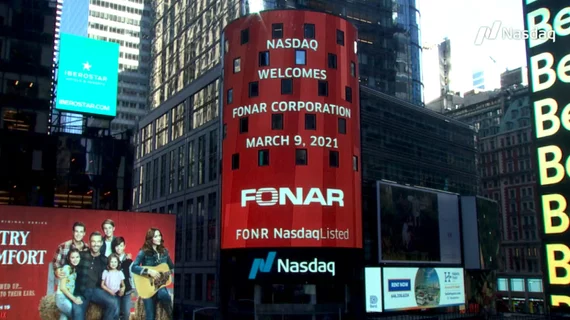MRI founder celebrates the modality’s 50th anniversary by ringing Nasdaq closing bell
The company credited with inventing magnetic resonance imaging, Fonar Corporation, celebrated the 50th anniversary of its discovery by ringing the Nasdaq stock exchange closing bell on Tuesday.
Founder and Chairman of the Melville, New York-based firm Raymond V. Damadian, MD, initially thought of MR imaging in the late 1960s, publishing his widely read study detailing the technology on March 19, 1971, in Science. About a decade later, Fonar was listed on the Nasdaq under the ticker $FONR.
And to mark 50 years since the discovery, Damadian and his son Timothy R. Damadian, president and CEO of the company, ended the March 9 stock trading day by virtually ringing the Nasdaq closing bell.
“I got my first idea for MRI in 1969, and in 1970 made the discovery that is the basis for the making of every MRI...ever produced and the foundation of the MRI industry,” Raymond Damadian remarked in a statement.
His foundational revelation showed a distinct difference in the relaxation time of MRI signals between normal and cancerous tissues and different types of normal tissues. Shortly after publishing his study, Damadian obtained the first MRI patent. And in 1977, with the help of two post-doc students, developed the world’s first MRI scanner.
One of those sidekicks, Lawrence Minkoff, PhD, reflected back on the event, noting Damadian agreed to be the first to enter the magnetic field, despite the risk. At first, the scan didn’t work, he explained, but after tweaking the coil the group produced an MRI signal from his chest.
“With this successful achievement we were then able to proceed and make the world’s first MRI image of a live human being,” Minkoff said in the statement.
Fonar became the world’s first dedicated MRI company in 1978, and installed the first commercial machine in 1980.
You can read the original 1971 paper published in Science here as well as Fonar’s MRI timeline here.

